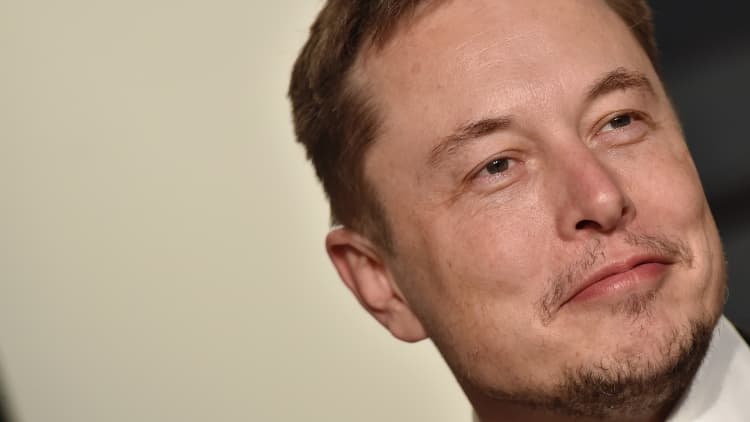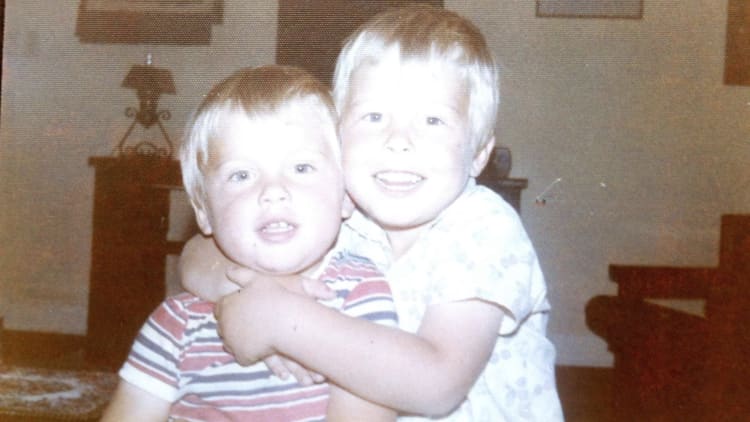Parents who want to raise the next visionary leader can learn a lot from looking at Tesla and SpaceX founder Elon Musk's childhood.
The billionaire's success can be traced back in part to the way he was raised, says New York University Stern School of Business professor Melissa Schilling.
In her new book "Quirky," Schilling analyzes the lives of innovators like Musk, Albert Einstein, Steve Jobs, Benjamin Franklin, Marie Curie and Thomas Edison to identify the traits that helped them make multiple history-altering discoveries.
"Letting your children pursue the path that gives them joy is intrinsically important," Schilling tells CNBC Make It. "By not forcing them to conform, you will not only make them feel better, but you will allow them to be more innovative."
Schilling explains that although she didn't intentionally search for commonalities in the way the innovators were raised, she discovered their parents played huge roles in shaping their futures.
"The more I studied Musk and the other innovators, the more it changed how I thought about my own parenting," Schilling says. "Studying these profoundly important people shows us that there are ways we can nurture the breakthrough innovation potential in us all."
Here are three things she says parents should do if they want to raise the next Elon Musk.
Encourage your kids to daydream
It's vital to give your children space to think for themselves, says Schilling.
Musk, for example, was a daydreamer. As a child, he had a tendency to ignore people and zone out. Similar to a young Einstein, Musk was so unresponsive that his parents and doctors ordered tests to check if he was deaf. His mother, Maye Musk, eventually learned this was his way of thinking things through.
"He goes into his brain and then you just see he is in another world. He still does that," Maye Musk recalls in Ashlee Vance's book "Elon Musk." "Now I just leave him be because I know he is designing a new rocket or something."
Studying these profoundly important people shows us that there are ways we can nurture the breakthrough innovation potential in us all.Melissa SchillingAuthor of "Quirky"
When his parents weren't home, Musk was "off making explosives and reading books and building rockets and doing things that could have gotten me killed," he told Rolling Stone in an interview last year.
Building environments where creativity can be nurtured is key to sparking your child's imagination, Schilling notes.
"That means instead of scheduling the heck out of your kids, you want to make sure they have downtime — and make sure it's not in front of a screen," she says. "That way, they can create their own cognitive paths of association in their minds that are unconstrained by what other people think."
Don't force your kids to fit in
One of the most common traits among the innovators in "Quirky" was a "sense of separateness" and a tendency to disconnect from the crowd.
"Elon got bullied and beaten because he was one of the small, nerdy kids," Schilling says. "He even recited facts from the encyclopedia."
The bullying continued until he was 15 years old, when he went through a growth spurt and learned how to defend himself by doing karate, judo and wrestling.

"Musk responded to this sense of separation by escaping into books and computer programming, ultimately writing and selling his first video game at the age of 12," she says.
This was one of the primary reasons Musk and the other innovators had a strong sense of self-efficacy. "Because they didn't belong to the social world, they didn't have to obey its rules, freeing them to develop bold ideas and stick with them even in the face of criticism," Schilling says.
While you don't want to "actively turn your child into a social pariah," she says you shouldn't necessarily worry if they are more of a loner. "This highlights the value of spending some time alone, reading, writing and thinking about things that we find intrinsically interesting."
Teach your kids to be fearless
As your children learn to embrace their independence, Schilling also recommends teaching your kids to be fearless and confident.
All of the leaders she examined in "Quirky" had early wins because "they got through struggles that allowed them to accomplish something amazing," she says.
Schilling says Musk expressed his fearlessness by rebelling against his parents. When he was 6, for example, Musk's parents told him he could not attend his cousin's birthday party, but that didn't stop him.
"The defiant young Elon walked there on his own, making a four-hour, 10-mile journey across Pretoria (his hometown)," Schilling says. "Hours later, Musk's mother arrived at his cousin's home to get him and understood this was just Elon being Elon."

"As parents, we often want to jump in and help them because we want that bonding experience, we love them, and we want to show them that we are there for them," she says. "But for their own sake, a lot of times it's better to just say 'you got this' or 'you can solve this on your own.'"
Today, Musk says he encourages his children to be risk-takers like he was as a child.
When it comes to trying new things, his No. 1 rule for his kids comes from one of his favorite science-fiction books, "The Hitchhiker's Guide to the Galaxy": "Don't panic."
"Set up your kids for early wins," Schilling says. "Sending them the message that they can overcome obstacles and achieve their goals is crucial to their success."
Like this story? Like CNBC Make It on Facebook.
Don't miss:



